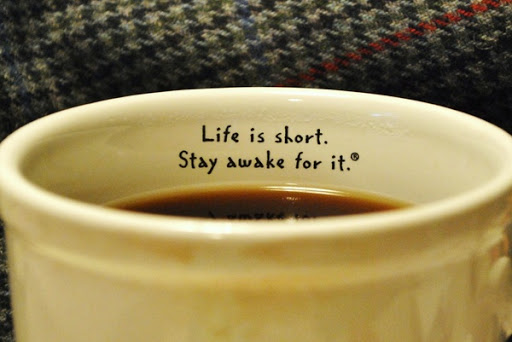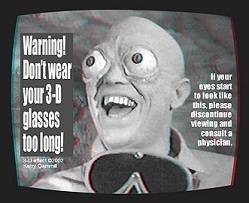It looks like you're using an Ad Blocker.
Please white-list or disable AboveTopSecret.com in your ad-blocking tool.
Thank you.
Some features of ATS will be disabled while you continue to use an ad-blocker.
share:
reply to post by howmuch4another
And, tea has caffeine! So that makes only water now as the beverage of choice,
I guess decaf maybe but it still has caffeine!

And, tea has caffeine! So that makes only water now as the beverage of choice,
I guess decaf maybe but it still has caffeine!

edit on 5-6-2013 by burntheships because: (no reason given)
reply to post by burntheships
I was trying to make a joke.....
I don't think that I would ever consume GMO coffe, especially GMO instant coffee!!!
I was trying to make a joke.....
I don't think that I would ever consume GMO coffe, especially GMO instant coffee!!!
reply to post by Wildbob77
I caught your joke.
Acutally I was shocked to learn they have made GMO coffee.
I caught your joke.
Acutally I was shocked to learn they have made GMO coffee.
reply to post by Wildbob77
How would you know if it's GMO coffee??? Dun dun dun! They don't have to brand it as such just as they don't have to mark food as a GMO product... Only the refined seeker would find out if HillsBros is GMO or Starbucks has been feeding us poison in a cup....
Note: I don't drink starbucks but once in a blue moon... But if your buyin i'm drinkin
I fail to see how this is a Mental Disorder and not reclassified as a addiction...
I.E~ I NEEDS ME COFFEE! HULK SMASH! ::Glug, Glug:: Good day to you sir~
How would you know if it's GMO coffee??? Dun dun dun! They don't have to brand it as such just as they don't have to mark food as a GMO product... Only the refined seeker would find out if HillsBros is GMO or Starbucks has been feeding us poison in a cup....
Note: I don't drink starbucks but once in a blue moon... But if your buyin i'm drinkin
I fail to see how this is a Mental Disorder and not reclassified as a addiction...
I.E~ I NEEDS ME COFFEE! HULK SMASH! ::Glug, Glug:: Good day to you sir~
*looks at the thread title*
*sip*
*twitch*
Guess I should be careful as I cut down...
don't wanna go mental

*sip*
*twitch*
Guess I should be careful as I cut down...
don't wanna go mental

reply to post by sulaw
Generally speaking I buy fair trade coffee at Trader Joes. I don't buy much coffee out.
I wouldn't know by taste if a coffee was GMO but I do think that the word will get out about which coffees are GMO and then I will avoid them.
Generally speaking I buy fair trade coffee at Trader Joes. I don't buy much coffee out.
I wouldn't know by taste if a coffee was GMO but I do think that the word will get out about which coffees are GMO and then I will avoid them.
Originally posted by JohnPhoenix
It seems to me a " Mental Disorder" should be something that can't be helped .. it's something wrong with the way the brain is wired. Caffeine withdrawals are clearly a cause and effect problem.
In fact I just looked up the definition of Mental Disorder from different sources and none of them fall under a cause and effect condition.
What next disagreeing with the government becomes a mental disorder?
It already is, John.
There's another thread in here about denying global warming being a mental
disorder now. They've run off the tracks, and the APA steering and document
committees are the ones who need meds and monitoring now. Everybody
between a mercury sloshed fifth grader and Gore Vidal's ghost knows it, too.
Stupid, stupid , stupid.
This stuff is like the writers of these articles are hypochondriacs. ..
Just let it go
This stuff is like the writers of these articles are hypochondriacs. ..
Just let it go
edit on 5-6-2013 by FreedomEntered because: (no reason given)
reply to post by FreedomEntered
WE THE PEOPLE SHALL NEVER Relenquish Our.... COFFEE~
You laugh at my Mental Disorder???
You think I'm a clown?
Doth this not entertain you!
WE THE PEOPLE SHALL NEVER Relenquish Our.... COFFEE~
You laugh at my Mental Disorder???
You think I'm a clown?
Doth this not entertain you!
edit on 5-6-2013 by sulaw because: bad grammar is instead of this
I fear more gun control as everyone will be classified as having a mental disorder. No guns for coffee drinkers. Withdrawal could lead to senseless
murder. We want to take all your rights away. We will take care of you.
Originally posted by Darkblade71
*sip*
*twitch*
Too funny, rotfl!
Wolves on caffeine withdrawl....

edit on 5-6-2013 by burntheships because: (no reason given)
This seems very fishy; I'll believe it when I see it in print.
It's clearly not a mental disorder!
Being drunk is far worse, but that doesn't seem to have made it into the manual.
It's clearly not a mental disorder!
Being drunk is far worse, but that doesn't seem to have made it into the manual.
Originally posted by CJCrawley
This seems very fishy; I'll believe it when I see it in print.
Time magazine has an article with the link to the new DSM-5
newsfeed.time.com...
reply to post by derfreebie
It's a money trail - if it's in the DSM they can claim for it. Someone, somewhere, sometime, has to get the psychiatric profession under control. They've been so busy trying to prove they're a 'real' branch of medicine that the profession itself has lost the plot. In fact they present so many of the symptoms they claim to 'cure' (drug/medicate) that the entire profession can now be described as neurotic and delusional.
If you have brain problems see a neurologist. If you have emotional problems see a psychologist. Where is psychiatry's place in medicine? Raising the profits of the pharmaceutical companies is my best (educated) guess.
It's a money trail - if it's in the DSM they can claim for it. Someone, somewhere, sometime, has to get the psychiatric profession under control. They've been so busy trying to prove they're a 'real' branch of medicine that the profession itself has lost the plot. In fact they present so many of the symptoms they claim to 'cure' (drug/medicate) that the entire profession can now be described as neurotic and delusional.
If you have brain problems see a neurologist. If you have emotional problems see a psychologist. Where is psychiatry's place in medicine? Raising the profits of the pharmaceutical companies is my best (educated) guess.
DSM-5 will not include caffeine use disorder, although research shows that as little as two to three cups of coffee can trigger a withdrawal effect marked by tiredness or sleepiness. There is sufficient evidence to support this as a condition, however it is not yet clear to what extent it is a clinically significant disorder. To encourage further research on the impact of this condition, caffeine use disorder is included in Section III of DSM-5.
www.dsm5.org...
Ah. It's not been officially classified as a disorder.
But, worryingly, they appear to be considering it.
It's not a disorder!
If you have been taking a substance and suddenly stop, then start to experience withdrawal effects - that's plain old addiction.
It's physical - nothing to do with mental disorders.
reply to post by CJCrawley
Not the use of caffeine....its the withdrawl of it. See that?
The question some are asking is whether it belongs in a guide devoted to mental disorders
Its the title of the thread, caffeine withdrawl as listed in the DSM, short
for Diagnostic and Statistical Manual of Mental Disorders
They did make caffeine withdrawl a disorder, it has been done.
And, they listed it in the Diagnostic and Statistical Manual of Mental Disorders.
Not the use of caffeine....its the withdrawl of it. See that?
Substance use disorder in DSM-5 combines the DSM-IV categories of substance abuse and substance dependence into a single disorder measured on a continuum from mild to severe. Each specific substance (other than caffeine, which cannot be diagnosed as a substance use disorder)
The question some are asking is whether it belongs in a guide devoted to mental disorders
Its the title of the thread, caffeine withdrawl as listed in the DSM, short
for Diagnostic and Statistical Manual of Mental Disorders
They did make caffeine withdrawl a disorder, it has been done.
And, they listed it in the Diagnostic and Statistical Manual of Mental Disorders.
edit on 5-6-2013 by burntheships because: (no reason given)
reply to post by burntheships
Withdrawal is part of the disorder.
Caffeine use disorder is not classified as a mental disorder.
www.dsm5.org...
Not the use of caffeine....its the withdrawl of it. See that?
Withdrawal is part of the disorder.
Caffeine use disorder is not classified as a mental disorder.
Each specific substance (other than caffeine, which cannot be diagnosed as a substance use disorder) is addressed as a separate use disorder (e.g., alcohol use disorder, stimulant use disorder, etc.), but nearly all substances are diagnosed based on the same overarching criteria.
www.dsm5.org...
Originally posted by CJCrawley
Withdrawal is part of the disorder.
Exactly, withdrawl. They can not classify use of caffeine as the disorder (yet)
www.dsm5.org...
That is not the entire Manual, I will look for a link.
ETA
If you’ve had more than 250 mg of caffeine (two to three cups of brewed coffee) and experienced five or more of the following symptoms, says the guide, you’ve probably been caffeine-buzzed: restlessness, nervousness, excitement, insomnia, flushed face, diuresis (having to pee a lot), gastrointestinal disturbance, muscle twitching, rambling flow of thought and speech, tachycardia or cardiac arrhythmia, periods of inexhaustibility or psychomotor agitation (unintentional motion, say, rapidly bouncing one leg).
This disorder, as it’s described in both the older DSM-IV and new DSM-5, falls under the heading “Caffeine-Related Disorders,” but in DSM-5, that section includes a new entry: caffeine withdrawal. According to DSM-5, symptoms of caffeine withdrawal include fatigue, headache and difficulty focusing.
“Caffeine is a drug, a mild stimulant, which is used by almost everybody on a daily basis,” said Dr. Charles O’Brien, who chairs the Substance-Related Disorder Work Group for DSM-5 (via New York Post). “But it does have a letdown afterwards. If you drink a lot of coffee, at least two or three [236 ml] cups at a time, there will be a rebound or withdrawal effect.”
newsfeed.time.com...
edit on 5-6-2013 by burntheships because: (no reason given)
reply to post by christina-66
That's what I was thinking too.
I wonder where they will code this in the medical coding reference manual.
I'm guessing it will go right there under those french Cafe' Latte' Spots?
www.icd10data.com...
It's a money trail - if it's in the DSM they can claim for it.
That's what I was thinking too.
I wonder where they will code this in the medical coding reference manual.
I'm guessing it will go right there under those french Cafe' Latte' Spots?
Cachexia R64
Café, au lait spots L81.3
Caffey's syndrome Q78.8
Caisson disease T70.3
Cake kidney Q63.1
Caked breast(puerperal, postpartum) O92.79
www.icd10data.com...
new topics
-
OK this is sad but very strange stuff
Paranormal Studies: 4 hours ago -
Islam And A Book Of Lies
Religion, Faith, And Theology: 6 hours ago -
Sorry to disappoint you but...
US Political Madness: 8 hours ago
top topics
-
Sorry to disappoint you but...
US Political Madness: 8 hours ago, 13 flags -
Watch as a 12 million years old Crab Emerges from a Rock
Ancient & Lost Civilizations: 13 hours ago, 10 flags -
OK this is sad but very strange stuff
Paranormal Studies: 4 hours ago, 6 flags -
Islam And A Book Of Lies
Religion, Faith, And Theology: 6 hours ago, 5 flags
active topics
-
Joe Biden gives the USA's Highest Civilian Honor Award to Hillary Clinton and George Soros.
US Political Madness • 48 • : Flyingclaydisk -
ILLUMINATION: Dimensions / Degrees – Da Vincis Last Supper And The Philosophers Stone
Secret Societies • 6 • : Compendium -
Sorry to disappoint you but...
US Political Madness • 15 • : Flyingclaydisk -
Meta Llama local AI system is scary good
Science & Technology • 39 • : Arbitrageur -
Musk calls on King Charles III to dissolve Parliament over Oldham sex grooming gangs
Mainstream News • 180 • : Freeborn -
Islam And A Book Of Lies
Religion, Faith, And Theology • 3 • : nugget1 -
Outgoing Lame Duck BIDEN Officials and Democrats Voice Their Regrets.
2024 Elections • 30 • : WeMustCare -
Tesla Cybertruck Explodes in Front of Trump Hotel in Las Vegas
Mainstream News • 229 • : Daughter2v2 -
What Is 'Quad Demic'? Mask Mandate Returns In These US States
Diseases and Pandemics • 39 • : AdultMaleHumanUK -
OK this is sad but very strange stuff
Paranormal Studies • 2 • : Ravenwatcher

